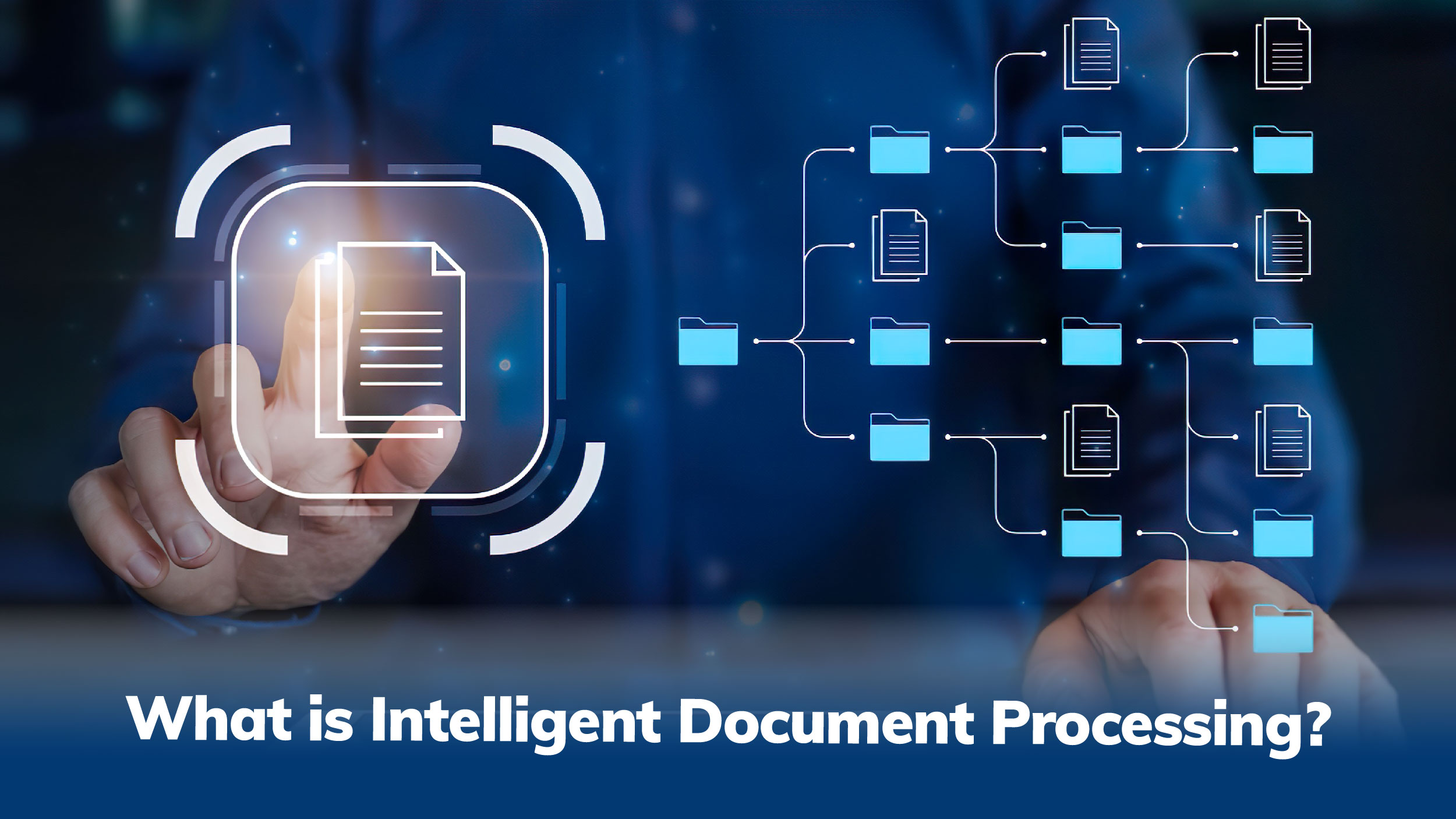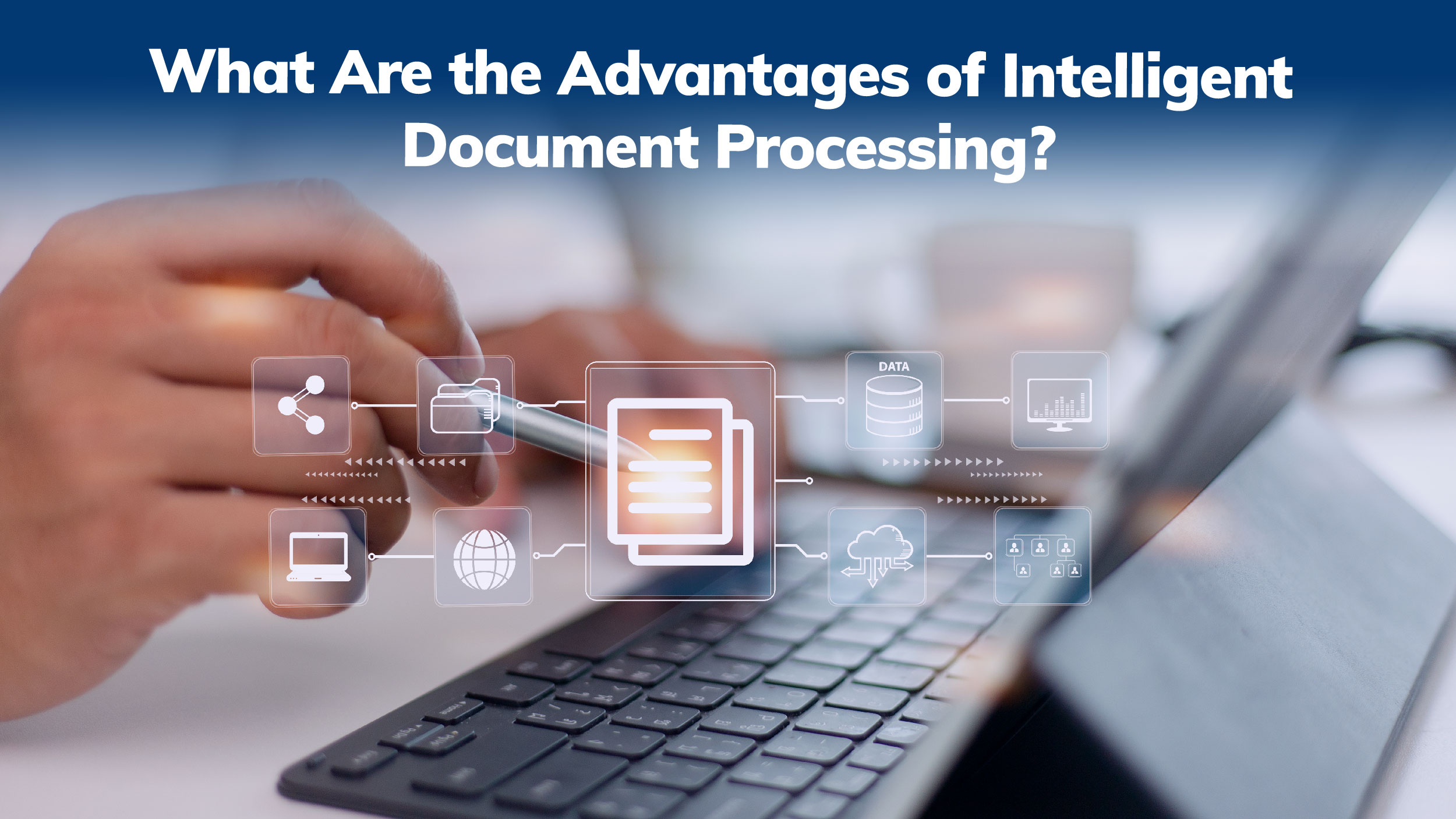No matter which industry you belong to, the term “data” has probably crossed your path more often than your own name. Data saturation is not a new thing. Today, organizations have an abundance of data, making it challenging to distinguish between useful information and irrelevant noise. Large-scale data mining can be expensive and time-consuming in search of useful insights. Indeed, this is precisely where IDP, or intelligent document processing, proves to be advantageous.
This demand for intelligent document processing roots back to the urgent need for businesses to handle massive amounts of semi-structured and unstructured documents, store and access them safely, and make them accessible for advanced analytics. This process is now an integral element of an organization’s daily operations. Let’s dig deeper into all there is to know about intelligent document processing, shall we?
What is Intelligent Document Processing?
 Intelligent Document Processing (IDP) represents a state-of-the-art technology empowering businesses to digitize and automate unstructured data from diverse documentation sources. These sources encompass scanned documents, PDFs, word-processing files, online forms, and other formats. IDP uses artificial intelligence (AI)-based technologies from natural language processing (NLP), machine learning (ML), and workflow automation to replicate human abilities in document identification, contextualization, and processing.
Intelligent Document Processing (IDP) represents a state-of-the-art technology empowering businesses to digitize and automate unstructured data from diverse documentation sources. These sources encompass scanned documents, PDFs, word-processing files, online forms, and other formats. IDP uses artificial intelligence (AI)-based technologies from natural language processing (NLP), machine learning (ML), and workflow automation to replicate human abilities in document identification, contextualization, and processing.
Simply put, it’s like having a genius secretary who effortlessly handles all your paperwork while you sip coffee and watch in awe. No more paper cuts or staring blankly at tedious documents!
IDP automates these processes by deciphering and analyzing document information utilizing AI algorithms.
The outcomes can be very potent.
Banks and insurance providers can eliminate manual errors, hasten decision-making, and increase customer satisfaction by automating the processing of loan applications, mortgage papers, and insurance claims. Medical billing, insurance claims, and patient information processing can all be streamlined in the healthcare businesses.
IDP systems can automate billing procedures, collect important patient data, and guarantee regulatory compliance. These systems can also be used to extract pertinent clauses, agreements, and other crucial information, and law firms can automate their paper stream.
How is Xiao-I Stepping Up the Document Game?
In May 2023, Xiao-I announced the launch of an IDP solution to automate document processing. Xiao-I, a leading cognitive AI enterprise in China, today announced the launch of its IDP solution, which automates document processing and boosts efficiency. The IDP solution leverages cutting-edge technologies, such as OCR, CV, NLP, and ML, to provide automated document recognition, classification, and key information extraction. This significantly reduces time and manpower costs and improves data accuracy.
The IDP solution is integrated with RPA to form a comprehensive RPA+IDP system that intelligently captures and organizes information in documents, seamlessly integrating it into enterprise systems. As a result, a remarkably efficient and transparent process is established, catering to a wide range of enterprise document requirements.
The IDP solution is versatile and can be deployed in a wide range of industries, including finance, banking, insurance, healthcare, retail, e-commerce, government, and human resources. It is also applicable to standard document processing scenarios.
Another interesting innovation in the IDP landscape was announced in February 2023. Ayr.ai introduced a groundbreaking innovation in AI to reduce the time to value for IDP.
What Are the Advantages of Intelligent Document Processing?
 Given below are the main benefits of using intelligent document processing:
Given below are the main benefits of using intelligent document processing:
- Improved Accuracy: Utilizing IDP will enhance the accuracy of your processing. When comparing IDP to human data processors, it becomes evident that the latter tend to make significantly more mistakes.
- Workflow Automation: Automate some of your workflows to cut down the expenses of document processing. The cost of manual document processing typically ranges from $6 to $8 per document. Automated document processing has a significantly lower per-document cost.
- Reduced Costs: By giving employees the chance to work on more worthwhile projects, you may increase employee productivity. Employees are free to focus on other tasks since they are not required to handle unnecessarily tedious paperwork.
How Is Intelligent Document Processing Different From Automated Document Processing?
The difference between the two might seem quite small but the impact both have differs widely.
Intelligent Document Processing is like an all-knowing assistant that understands, learns, and extracts meaningful data. On the other hand, automated document processing is a reliable workhorse that mechanically handles documents without understanding or learning capabilities.
Despite their similarities, IDP and automated document processing are fundamentally different technologies in terms of their underlying mechanisms. Automated document processing is typically used for converting paper documents to digital formats. Paper documents can be digitally copied so that a database can be searched and have access to them. This is crucial for businesses that rely on paper documents but require the digitization of their data, such as the DMV.
Microsoft’s AI Builder and Power Automate facilitates intelligent document processing by building an E2E workflow automation process, which encompasses both human validation and data export.
Examples of Intelligent Document Processing Use Cases
IDP is employed in every sphere of business. Here are some key use cases for the same:
- IDP helps finance departments automate the processing of invoices and other accounts payable tasks.
- It assists human resources departments in processing resumes, employment screening, employee surveys, and other HR data.
- Intelligent document processing software empowers government organizations to efficiently manage permits, generate electronic documents, and streamline application handling processes.
- Insurance businesses leverage IDP to handle claims, identify fraud, prioritize insurance policies, and expedite document processing.
- IDP enables law firms to manage legal data more accurately than they could with manual document processing.
These are just a few industries that utilize IDP to optimize data processing workflows. IDP has a wide range of uses and benefits for most organizations if you’re using the proper software.
Some IDP software popularly used by businesses are Hyperscience, Kofax, and Abbyy FlexiCapture.
Final Thoughts on Intelligent Document Processing
The Intelligent Document Processing (IDP) market is a rapidly emerging technological landscape that leverages AI and ML techniques to process unstructured and semi-structured data from documents. IDP solutions can automate and streamline data processing processes, minimizing the time and expense associated with manual validation and boosting productivity. IDP is capable of managing a variety of document types, including invoices, receipts, forms, and contracts, and has numerous use cases in a variety of industries, including banking, healthcare, legal, and insurance. All in all, IDP is a game-changing technology with enormous promise for accelerating the digital revolution, cutting costs, and improving consumer experiences.

































